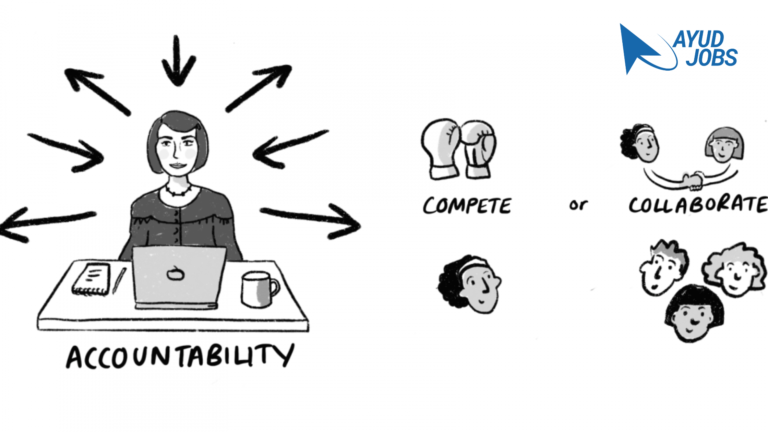The Importance of Building a Strong Value System
A value system is a set of guiding principles that individuals, families, organizations, and societies use to make decisions and govern their actions. These values shape how we behave, how we interact with others, and how we view the world. In this blog, we will explore the significance of having a solid value system, how to build one, and how it can make a lasting impact on our lives and the lives of those around us. This will be a detailed, easy-to-understand guide for technical and non-technical people, and students alike.
Table of Contents
What is a Value System?
Why is a Value System Important?
Building Your Value System
Real-Life Example: How a Strong Value System Changed Neha’s Life
How to Align Your Actions with Your Values
The Impact of Value Systems in Organizations
Why a Value System is Important for Students
How a Strong Value System Can Improve Your Relationships
Practical Steps to Integrate Your Value System into Daily Life
Conclusion: Creating a Value System That Transforms Your Life
1. What is a Value System?
A value system refers to the set of beliefs, priorities, and ethics that an individual or group holds dear. It includes values like honesty, integrity, respect, kindness, responsibility, and empathy. Your value system influences your behavior and decision-making in everyday life. It acts as an internal compass, helping you choose between right and wrong, and making decisions that align with your personal principles.
Values can be shaped by family, culture, religion, education, and personal experiences. They serve as the foundation for how you approach life and how you interact with others.
2. Why is a Value System Important?
A strong value system is important for several reasons:
Decision-Making: Values guide you when making difficult choices. For example, if honesty is a core value, you’ll likely choose to tell the truth even in uncomfortable situations.
Consistency: Values provide a sense of consistency in behavior. When you know what you stand for, you’re less likely to act in ways that contradict your beliefs.
Trust and Respect: Living according to your values helps build trust and respect with others. People are more likely to respect you if they see that your actions align with your words.
Mental Well-being: A strong value system reduces internal conflict. When your actions align with your values, you feel more content and confident.
3. Building Your Value System
Building a value system requires self-reflection and an understanding of what truly matters to you. Here are steps to help you establish one:
Identify Core Values: Reflect on what principles are most important to you. Examples include respect, loyalty, courage, and responsibility.
Prioritize: Not all values will carry equal weight in every situation. Prioritize the values that are most crucial for your decision-making process.
Practice Self-Awareness: Stay mindful of whether your actions align with your values. This will help you adjust your behavior when you stray.
Adopt from Role Models: Identify people you admire and think about the values they represent. Integrating their guiding principles into your value system can strengthen it.
4. Real-Life Example: How a Strong Value System Changed Neha’s Life
To help you see the importance of having a value system, let’s take a real-time example of Neha, a young woman who faced difficult decisions early in her career. Neha worked in a corporate office where shortcuts and dishonesty were the norm. She was often pressured to compromise her integrity to get ahead.
However, Neha’s value system was deeply rooted in honesty and fairness, values instilled in her by her parents. Even though her colleagues chose the easy way out, Neha stood by her values, even when it cost her a promotion. Over time, her consistent honesty and integrity earned her the respect of higher management, and she was offered a leadership position at a different company where ethics were prioritized.
Neha’s story is a testament to how a strong value system can guide you through tough decisions and eventually lead to success—without compromising who you are.
5. How to Align Your Actions with Your Values
Once you’ve built your value system, it’s essential to align your actions with your values. Here are some steps to help:
Review Decisions: When facing a decision, ask yourself whether your choice aligns with your values. This reflective process keeps you grounded.
Set Boundaries: Avoid situations where you may be forced to act against your values. If honesty is your top value, don’t put yourself in environments that encourage deception.
Communicate Your Values: Make it clear to others where you stand on certain issues. When people know your values, they are less likely to pressure you into acting against them.
6. The Impact of Value Systems in Organizations
Companies with strong value systems often have higher employee satisfaction and better public reputations. Values such as transparency, fairness, and responsibility encourage a healthy workplace culture, where employees feel respected and motivated.
For example, companies like Patagonia and Ben & Jerry’s are known for their ethical practices, sustainable business models, and commitment to social responsibility. These values attract employees who share the same beliefs, creating a thriving and positive workplace.
7. Why a Value System is Important for Students
Students are in a unique stage of life where they are shaping their identity and future. A value system helps guide students in making decisions related to education, friendships, and career goals. It teaches them:
Ethics in Academics: Avoiding plagiarism, cheating, and dishonesty in academic work.
Time Management: Responsibility and discipline in managing their study schedules.
Respect and Empathy: Building healthy relationships with classmates and teachers.
8. How a Strong Value System Can Improve Your Relationships
One of the most significant benefits of a strong value system is how it positively impacts your relationships. Whether it’s friendships, family connections, or romantic partnerships, values like respect, empathy, and trust are the foundation of healthy interactions.
When both parties share similar values, it creates a solid bond. However, even when values differ, understanding and communicating your values can help bridge the gap and promote mutual respect.
9. Practical Steps to Integrate Your Value System into Daily Life
Integrating your value system into daily life requires consistency and practice. Here are some steps you can take:
Start Your Day with Reflection: Spend a few minutes each morning reminding yourself of your core values. This will set the tone for your day.
Make Values-Based Goals: When setting personal or professional goals, ensure they align with your values. For example, if your value is kindness, make an effort to be more compassionate to those around you.
Engage in Value-Based Activities: Participate in activities that reflect your values. If you value environmental sustainability, get involved in community clean-ups or eco-friendly initiatives.
Evaluate Your Day: At the end of each day, reflect on how your actions aligned with your values. Celebrate when you upheld them and think about how you can improve when you didn’t.
10. Conclusion: Creating a Value System That Transforms Your Life
A strong value system is the foundation of a fulfilled and meaningful life. It helps guide your actions, improves your decision-making, and builds trust in relationships. Whether you are a student, a working professional, or someone looking to make a positive change, building and living by a value system can bring consistency, respect, and purpose into your life.
By identifying your core values, reflecting on your daily actions, and making decisions that align with your beliefs, you’ll find that a solid value system doesn’t just improve your life—it also sets an example for others and leaves a lasting impact on the world around you.
#ValueSystem #PersonalGrowth #LifePurpose #EthicsInLife #ValuesAndSuccess #LiveWithIntegrity #CoreBeliefs #DecisionMaking #TrustAndRespect #PositiveChange #ayud #ayudjobs #askayud #MultiLanguageSupport #ResumeBuilder #gotestit #ayudian #ayudblog #ayudcareer
How to Use Ayud : A Comprehensive Guide
Join our what’s app channel for timely updates
Click here to install Ayud Jobs App from Playstore
Social Respect Understanding Its Importance in Everyday Life
Enhancing Decision-Making Skills: A Vital Skill for Students







